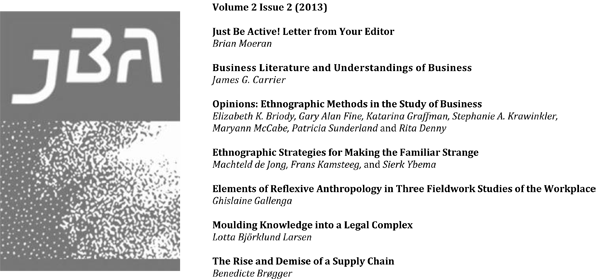Moulding Knowledge into a Legal Complex: Para-ethnography at the Swedish Tax Agency
DOI:
https://doi.org/10.22439/jba.v2i2.4159Abstract
The foundation of a functioning welfare state is a tax system that is widely accepted and considered to be fair and legitimate. How and by what means a tax collecting agency interprets the laws are thus seen to have an impact on taxpayers’ willingness to pay. This article addresses the various practices, knowledge and forms of data that the Swedish Tax Agency applies in a risk assessment project, against a background of the Agency’s on-going endeavour for legitimacy. This article shows how its methods not only entail taking account of massive amounts of Tax Agency regulations, research, and statistical results to follow, but also reveals how stories, hunches and examples from media and everyday life coalesce to affect those methods. So, too, with the ethnographer’s role: how is she to deal with knowledge production within a governmental organization whose employees read, and also learn from, what she writes.Downloads
Published
2013-10-31
Issue
Section
Articles
License
Authors who publish with this journal agree to the following terms:
- Authors retain copyright and grant the journal right of first publication with the work simultaneously licensed under a Creative Commons Attribution License that allows others to share the work with an acknowledgement of the work's authorship and initial publication in this journal.
- Authors are able to enter into separate, additional contractual arrangements for the non-exclusive distribution of the journal's published version of the work (e.g., post it to an institutional repository or publish it in a book), with an acknowledgement of its initial publication in this journal.
- Authors are permitted and encouraged to post their work online (e.g., in institutional repositories or on their website) prior to and during the submission process, as it can lead to productive exchanges, as well as earlier and greater citation of published work (See The Effect of Open Access).



